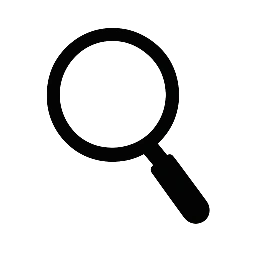Science and freedom may appear to belong to different realms—one confined to laboratories, the other to political philosophy—but they share a common heartbeat: the search for truth. Science asks what is true in nature. Freedom asks what is true about human nature. When either pursuit is suppressed, the other begins to die.
Why Science Depends on Freedom
Every major breakthrough in history began with someone who refused to accept the approved version of reality. Galileo questioned the heavens, Pasteur challenged medical orthodoxy, and countless chemists, inventors, and thinkers pursued observation over obedience. Science flourishes only where minds are free to question without punishment.
Yet in the modern age, “peer review” and “consensus” are often wielded as tools of conformity rather than truth. Funding determines which questions are allowed. Media campaigns decide which answers are celebrated. What once was an open inquiry has too often become an institution of managed belief.
The result? Science risks turning into dogma—the very thing it was designed to overthrow.
Freedom as the Laboratory of Civilization
Freedom operates like a scientific experiment on a societal scale. It thrives on diversity of thought, competing hypotheses about how to live, and the willingness to test new ideas without fear of exile. Remove that diversity and the culture stagnates.
When governments or corporations monopolize information, they collapse this natural experimentation. Policies become “settled science.” Economics becomes “inevitable.” Health directives become “non-negotiable.” The vocabulary of certainty replaces the humility of discovery.
True freedom isn’t chaos—it’s the condition necessary for progress.
Where the Two Intersect
Science and freedom meet at a single principle: the right to doubt.
- In science, doubt protects us from error.
- In freedom, doubt protects us from tyranny.
A population that can’t question its experts is as vulnerable as a lab that can’t question its data. Both end up defending conclusions that no longer match observable reality.
The Practical Side of the Problem
This isn’t just a philosophical concern—it shows up in everyday life.
- Health: When alternative research is silenced, patients lose options and chronic illness becomes profitable.
- Finance: When economic “experts” rewrite the rules to benefit the few, inflation and debt replace stability.
- Technology: When platforms control what can be said, innovation bows to ideology.
The pattern repeats: censorship creates stagnation, and stagnation breeds dependence.
A Conversation We Must Keep Having
The bridge between science and freedom is conversation—the honest exchange of evidence and perspective. When discussion is outlawed, error becomes immortal. When people can debate openly, falsehood collapses under its own weight.
That’s why Question Everything was created: to preserve the space where inquiry and liberty overlap. Listeners don’t have to agree on every conclusion; they only have to value the right to investigate.
The Citizen Scientist
Every free individual now faces a choice: delegate thinking to institutions, or reclaim the role of investigator. You don’t need a laboratory to practice scientific reasoning—you need curiosity, skepticism, and the courage to compare claims against reality.
Start small:
- Check the Source. Who benefits from this narrative?
- Follow the Data. Does it match what you can see or measure?
- Test the Outcome. When policies or products are implemented, do they deliver the promised results?
This simple discipline—applied daily—keeps freedom alive in the mind even when institutions falter.
The Future of Inquiry
As technology accelerates, the temptation to outsource thinking to algorithms will intensify. Convenience will whisper, “Let the system decide for you.” But a civilization that forgets how to reason independently will eventually lose both its science and its freedom.
Our task is to ensure that doesn’t happen—to use the tools of progress without surrendering the spirit of exploration that created them.
Closing Reflection
Science without freedom becomes propaganda.
Freedom without science becomes superstition.
The harmony between them is civilization’s most fragile achievement. To preserve it, we must defend not only the right to speak, but the right to observe, to measure, to doubt—and to follow truth wherever it leads.
Because in the end, the pursuit of knowledge and the pursuit of liberty are the same journey, seen from different angles of the same prism.


Leave a Reply